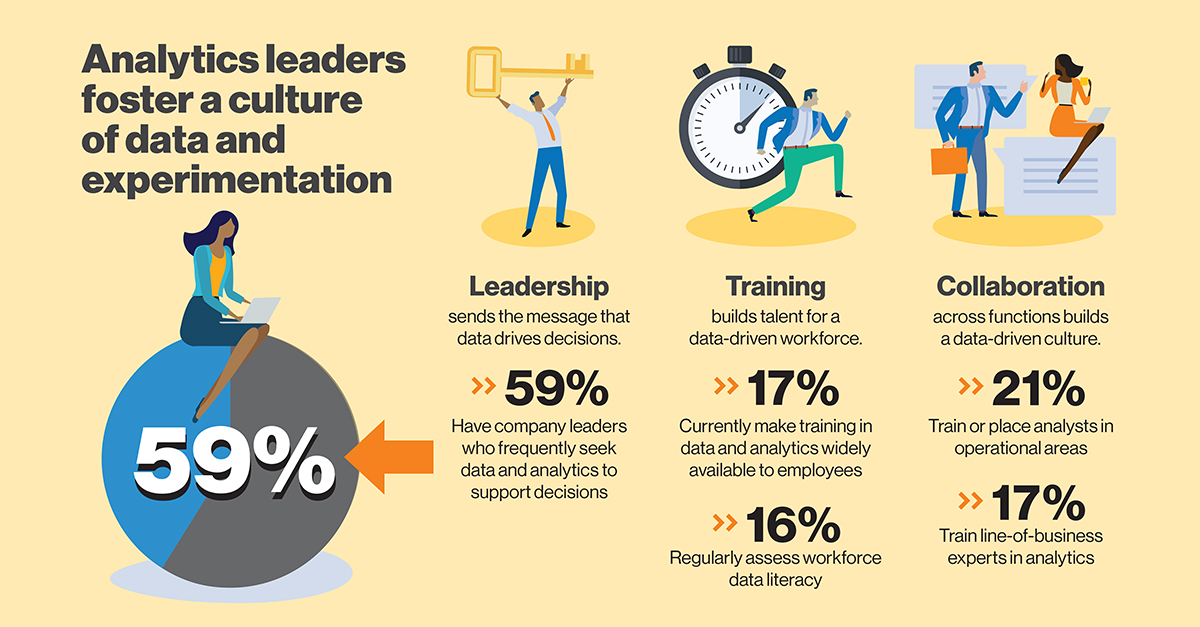MIT SMR Connections
MIT SMR Connections is an independent content creation unit within MIT Sloan Management Review. We develop high-quality content commissioned and funded by sponsors. We welcome sponsor input during the development process but retain control over the final product. MIT SMR Connections operates independently of the MIT Sloan Management Review editorial group.
Deriving more value from analytics and emerging technologies like artificial intelligence starts with trust, simply because data collected for analytics must be trusted. Customers and partners that share data must trust that it’s safeguarded and used appropriately from collection through storage and to how it’s applied. And once insights emerge from applying analytics to the data, individuals throughout the organization must understand the care given to data management so that they trust those insights — and use them — to make decisions and ask new questions.
Our global survey of more than 2,400 business leaders and managers provides insight into organizations’ activities in each of these key areas and identifies where recognized best practices are becoming more mainstream and where they may still be exceptional. It found that respondents who have advanced their analytics practices to incorporate AI-based technologies such as machine learning and natural language processing work in organizations that do the most to foster data quality, safeguard data assets, and develop cultures of data literacy and innovation.
Overall, the survey found a persistent gap: While the majority of respondents report increased access to data, only a minority say they have the “right” data to make decisions. Notably, those who report a high level of trust in data for analytics are also more likely to show leadership in foundational activities that ensure that the data is high quality and leads to useful insights.
The survey, augmented by interviews with leading practitioners and experts in the field, gauges the data analytics practices of organizations around the world and how respondents view the effectiveness of those practices. Three major conclusions emerge among the chief findings:
1. Better data governance is needed. A minority of respondents have formal activities in data quality assurance, which points to the need for a greater commitment to data governance in support of advanced analytics. The practitioners interviewed provide examples of approaches to data architecture, governance, and quality that can build trust in data for analytics.
2. Data privacy emerges as an opportunity. Data security is the strongest focus among survey respondents, but there are opportunities to increase the maturity of security practices by applying analytics and AI in this arena. Data privacy initiatives are not quite as strong. Interviews highlight opportunities to approach privacy initiatives and GDPR as a way to build trust with customers, rather than simply treating them as compliance-driven mandates.
3. Fostering an analytics culture improves innovation. Leadership and management practices that support a culture of analytics-driven innovation are relatively strong, but the research shows many organizations have an opportunity to do more to spread the necessary skills and mindset throughout the workforce. A minority of respondents are engaged in activities that develop workforce data literacy; meanwhile, finding a workforce with the right skills was cited as one of the most significant challenges to innovating. Interviews with practitioners show how analytics leaders can foster a culture of innovation by educating, communicating, and collaborating with partners in lines of business.
Organizational choices — such as centralizing the analytics function and having a chief data officer or chief analytics officer role — may also help advance analytics maturity. Those who have a CDO or CAO are more likely to report that they have the data needed for decision-making, as are those who work in organizations where analytics are centralized.
For leaders of organizations still striving to achieve analytics maturity, the testimony from practitioners — who range from data leaders at multinational corporations to the head of a small municipal government team — is particularly useful. Their chief lesson: Communication and collaboration between analytics and business experts lead to mutual understanding and measurable benefits. In other words, trust delivers value.



